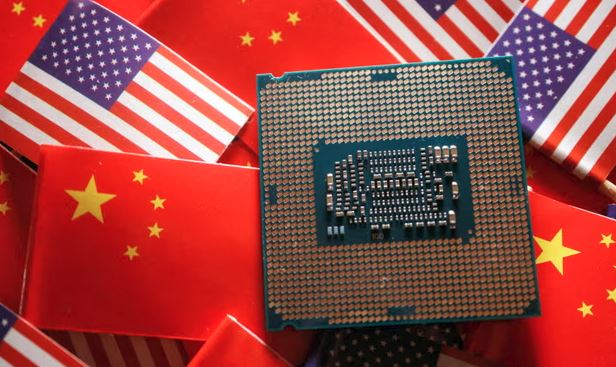U.S. Imposes Chip Export Controls in Middle East Amidst Escalating Tech War

U.S. Imposes Chip Export Controls in Middle East Amidst Growing Tech War with China. (Photo: economictimes)
Escalation of Chip Export Control Measures in the Middle East Amid U.S.-China Tech War
According to the article written by dw.com, in a recent development, the United States has imposed chip export controls on certain computer chips destined for the Middle East, marking an extension of the ongoing tech war between the U.S. and China to the region. Nvidia, a leading U.S. technology company renowned for producing cutting-edge computer chips used in a wide array of applications, disclosed that it would limit the export of its most advanced chips to undisclosed Middle Eastern countries.
While the specific nations affected and the rationale behind the restrictions remain undisclosed, many view this move as a manifestation of the broader U.S.-China tech war in the Middle East. The backdrop to this development lies in the U.S.’s ongoing efforts to outpace China in the realm of transformative artificial intelligence (AI) technology. To hinder China’s AI progress, one of the tactics employed is the restriction of Chinese access to essential semiconductor chips crucial for advanced AI models.
These chips are primarily produced by U.S.-based companies, with Nvidia being a world leader in this field. Consequently, the U.S. Department of Commerce had already announced chip export controls on advanced chips to China and Russia last year, with the recent announcement adding another layer to these measures.
READ ALSO: Possible Government Shutdown Looms, Threatening Essential Services and Air Travel
Undisclosed Middle Eastern Targets of Chip Export Control Measures Raise Concerns
The Middle Eastern countries impacted by the chip export controls, initiated by the U.S. government and Nvidia, remain undisclosed. Likely candidates include Iran, Saudi Arabia and the UAE, all of which invest significantly in AI.
These chip export controls aim to prevent advanced chips from being used for military purposes and human rights abuses amid concerns that Chinese tech firms might exploit Middle Eastern nations to evade these restrictions, given China’s increasing presence in the region. The situation is complicated by growing ties between the Middle East and China, raising concerns about unauthorized technology transfer.
Saudi Arabia and the UAE have deepened their cooperation with China in recent years, while export concerns exist including AI-enabling chips to Russia. In summary, these chip export controls seek to safeguard national interests but also reflect broader concerns about AI proliferation amid the global tech competition between the U.S. and China.
These chips are primarily produced by U.S.-based companies, with Nvidia being a world leader in this field. Consequently, the U.S. Department of Commerce had already announced chip export controls on advanced chips to China and Russia last year, with the recent announcement adding another layer to these measures.
READ ALSO: Breakthrough Arrest: Duane ‘Keffe D’ Davis Charged in Tupac Shakur’s 1996 Murder Case









